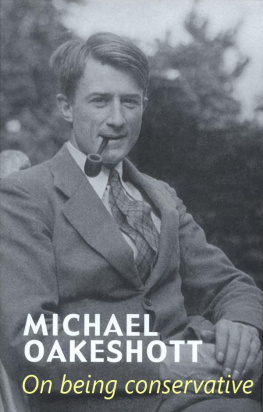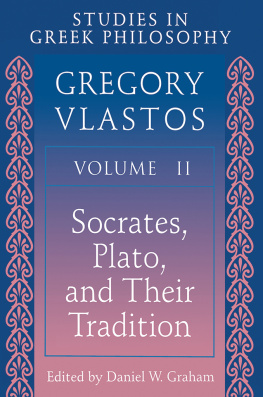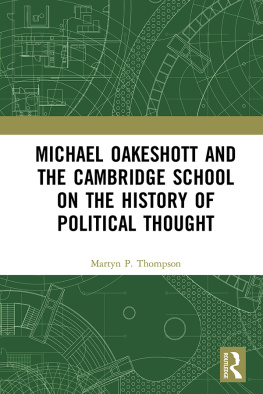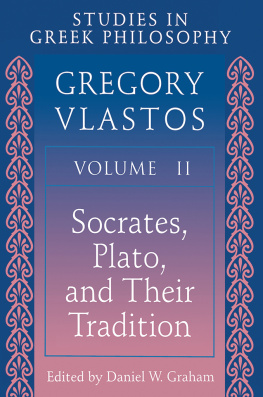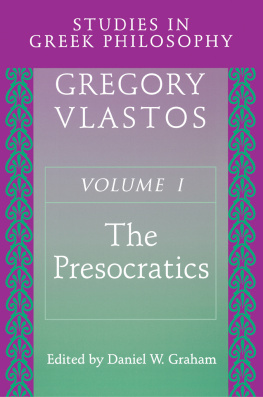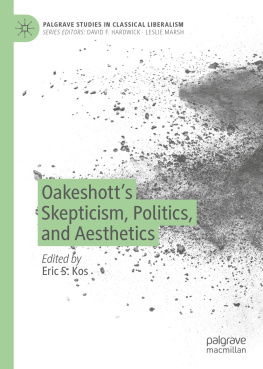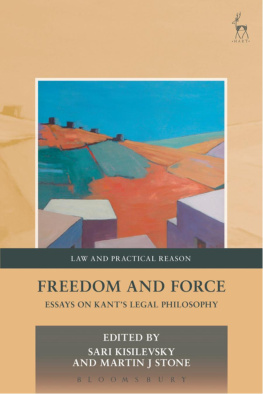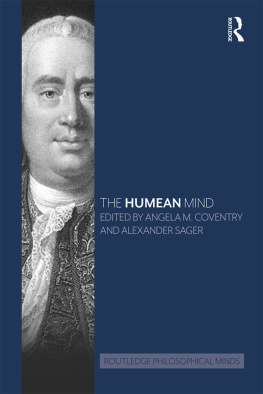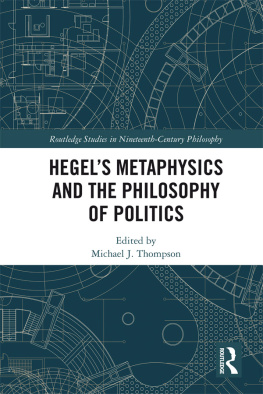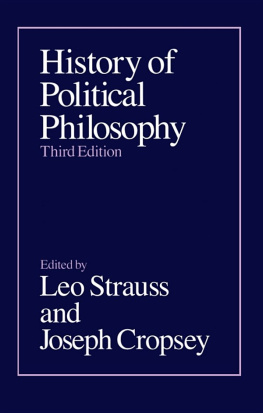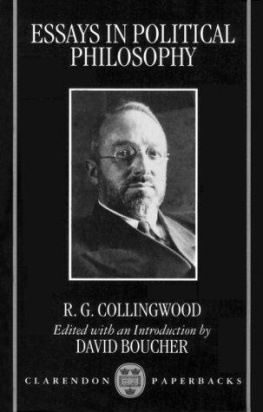Title Page
WHAT IS HISTORY?
and other essays
Michael Oakeshott
Edited by Luke OSullivan
Publisher Information
This collection copyright Imprint Academic, 2004
The moral rights of the author have been asserted.
No part of any contribution may be reproduced in any form without permission, except for the quotation of brief passages in criticism and discussion.
Originally published in the UK by Imprint Academic
PO Box 200, Exeter EX5 5YX, UK
Originally published in the USA by Imprint Academic
Philosophy Documentation Center
PO Box 7147, Charlottesville, VA 22906-7147, USA
Digital version converted and published in 2011 by
Andrews UK Limited
www.andrewsuk.com
Preface
This volume will hopefully be the first of several collecting together Oakeshotts hitherto unpublished writings and those that remain difficult to obtain, scattered as they are throughout a variety of journals and periodicals. The focus of the present work is on previously unpublished essays and reviews in the Oakeshott archive at the London School of Economics. The LSE is therefore to be thanked for consenting to its publication. Professors K. Minogue, T. Fuller, J. Gray, and T. Nardin, as well as Mr L. Marsh of the Michael Oakeshott Association, all generously assisted in supporting the initial proposal to publish, and offered helpful advice on the contents of the volume, though of course responsibility for its final form rests solely with the editor.
Many hours were spent in the LSE archive transcribing the papers this volume contains. The staff of the reading room offered unfailingly prompt and cheerful assistance. Serendipitously, Dr Robert Grant, currently preparing a much-needed biography of Oakeshott, was working there at the same time. As previously, Imprint Academic proved an ideal publisher to work with, happily accommodating the inevitable changes that arose as the volume expanded far beyond the dimensions initially projected.
Luke OSullivan
London 2003
Introduction
Michael Oakeshott (190190) published his first book, Experience and its Modes , in 1933. It was nearly thirty years before his next work, the collection of essays entitled Rationalism in Politics appeared. Admittedly, this discounts The Social and Political Doctrines of Contemporary Europe and Hobbess Leviathan , as well as a guide to picking the Derby winner he co-authored with Guy Griffith under the humorous title of A Guide to the Classics , but none of these were scholarly works he had composed himself. The first was a documentary reader, the second a new edition of a classic of political philosophy (for which, however, he did supply a noteworthy introductory essay), and the third, a serious betting manual. Thereafter, if we ignore another collection republishing several of his essays on Hobbes, Hobbes on Civil Association , he wrote only two more books, On Human Conduct and On History .
During his tenure as Professor of Political Science at the London School of Economics from 1951 to 1967, Oakeshott enjoyed brief periods of notoriety, especially following his inaugural lecture on Political Education and the appearance of Rationalism in Politics , both of which marked him out as a stringent critic of his own times. Otherwise, he was little studied except by a small circle of admirers, until in old age increasing recognition of his philosophical gifts led to an effort to make more of his writings publicly available. A collection of his essays on education, The Voice of Liberal Learning , and a second, considerably expanded, edition of Rationalism in Politics appeared, with his blessing, shortly before his death. These volumes were followed rapidly by two further works, Religion, Politics, and the Moral Life , including a number of neglected early essays on theology, and Morality and Politics in Modern Europe , a lecture series given at Harvard in 1958. After an only slightly longer pause, another hitherto unknown manuscript, The Politics of Faith and the Politics of Scepticism , probably also dating from the 1950s, issued from the press in 1995.
Since that time, Oakeshotts reputation has grown further, to the point where many believe that he can hold a place amongst the best philosophers of any era.
To illustrate this development, Oakeshotts writings have been presented in chronological order. They cover four main areas, in each of which he asked more or less the same questions throughout his career, while gradually revising his answers. The first area is the nature of philosophy and its relation to other human activities. The two essays most relevant to this question are An Essay on the Relations of Philosophy, Poetry, and Reality (the longest in the volume), and Work and Play. The second area is the logic of historical understanding. The ten pieces published here include essays on both the nature of historical thought, and on the course of historical events. One of the former, a review of E.H. Carrs famous work What is History? , provided the title for this collection, which begins and ends with items on the philosophy of historical understanding and historiography respectively. The third enduring area of interest was the nature of the state or civil association. Typically, this interest was reflected back on itself, so that Oakeshott was also led repeatedly to examine the nature of the philosophical enquiry into politics on which he had embarked. There are fifteen items on politics and political philosophy, including two essays on the nature of political theory written almost fifty years apart. The Cambridge School of Political Science and What is Political Theory? illustrate perfectly the differences and continuities between the ideas of the young and the old Oakeshott. The final area with which he had an abiding concern was the philosophy of education, represented here by two essays, On Arriving at a University and The Character of a University Education. The remainder of this introduction briefly discusses each of these areas in turn.
The Essays
1. The Nature of Philosophy
In the 1920s, Oakeshott inclined philosophically towards Spinozism and Platonic Idealism. These affinities made him a Rationalist, in the sense that he regarded philosophical definition as the most complete form of human understanding. Experience and its Modes , which acknowledged Hegels Phnomenologie des Geistes and Bradleys Appearance and Reality , entailed significant alterations to his early ideas. If anything, it seems he was more influenced by Hegelianism and British Idealism in his later twenties and thirties than he had been in his youth. In early works like An Essay On The Relations of Philosophy, Poetry, and Reality, the young Oakeshott had been quite critical of English Hegelians such as Sir Henry Jones whom he believed failed to share his conception of philosophy as the rational pursuit of correct definitions. Nevertheless, The Relations of Philosophy, Poetry, and Reality was concerned, like Experience and its Modes (and indeed, like all of Oakeshotts later work) with the problems involved in classifying different regions of human thought and activity. It also provided the vocabulary of modality so prominent in Experience and its Modes , which seems to have come from Oakeshotts reading of Spinozas Ethics .
The Relations of Philosophy, Poetry, and Reality is important, too, because it is Oakeshotts only substantial reflection on aesthetics prior to The Voice of Poetry in the Conversation of Mankind (1959). In both essays, poetry is the term used to refer to all aesthetic experience. But in the 1920s Oakeshott made it embrace much morenot only artistic endeavours such as painting, music, and sculpture, but also religious and mystical experience, and in fact, intuitive experience generally. In considering the claims of philosophy and poetry to give access to ultimate reality, Oakeshott preferred, if anything, the claims of the supra-rational, poetic and intuitive, aspect of human nature. Though this seems out of keeping with the Platonic Rationalism attributed to him above, it is perhaps simply an expression of a different strand in Plato, whose works contain not only a vision of the perfectly rational philosopher king, but also of a kind of man who has transcended even this, and now apprehends the divine form of the good directly.
Next page

